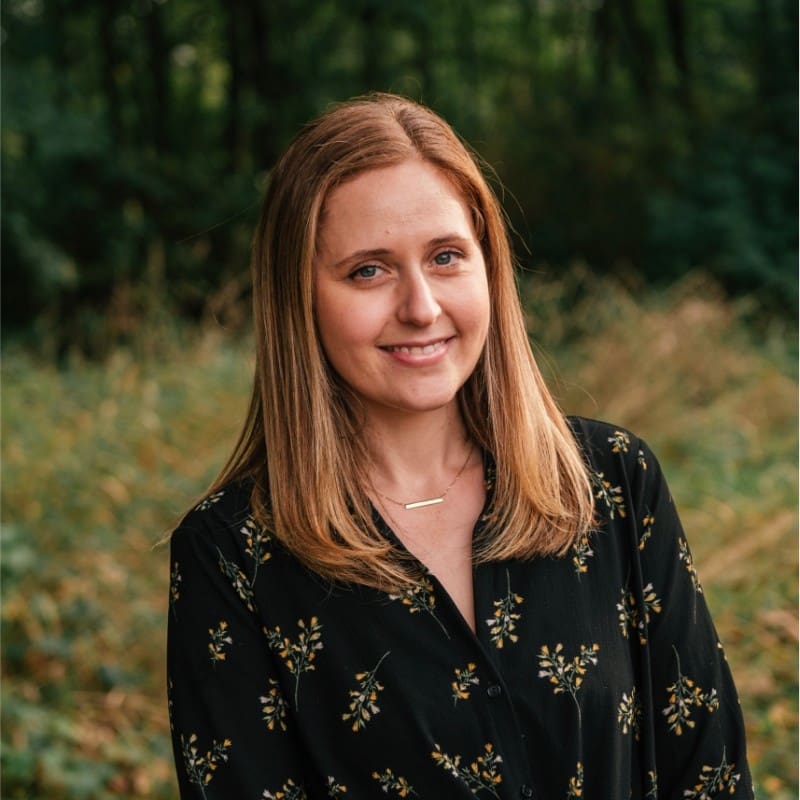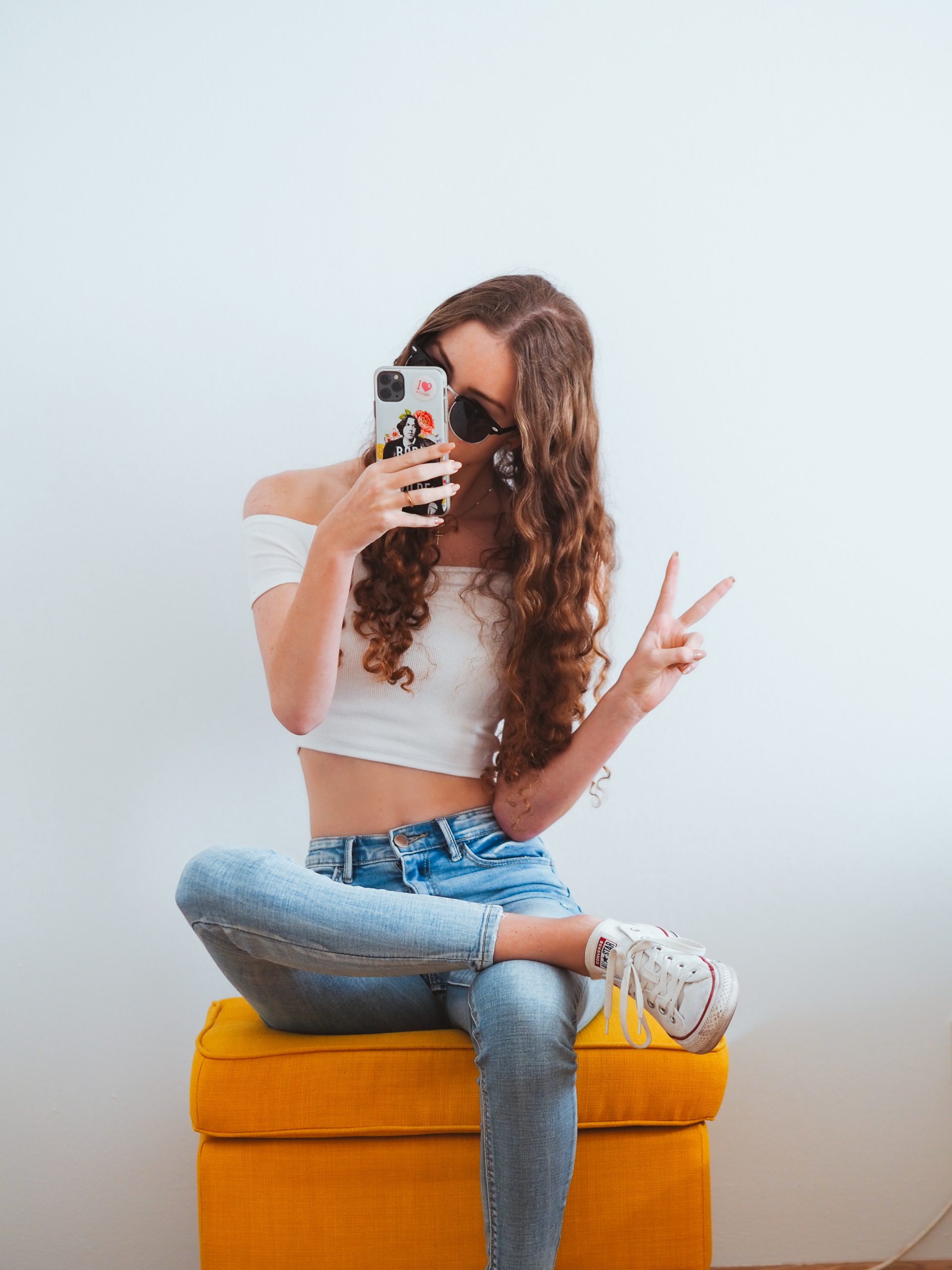Mahsa Di Placito is host of one of our fave podcasts, the Have You Heard About podcast, which delves into provocative and candid conversations that will change the way you think about pop culture. We chatted with Mahsa, a Vancouverite, to learn more. —Noa Nichol

Hello Mahsa! Please tell us a bit about yourself to start.
Hello! I’m a lifelong fan of pop culture. Hard to say when that started, but my family immigrated here from Iran when I was five, and I mostly learned English through watching TV (there was lots of Saved by the Bell and Full House in my home growing up!). I think this is where that first inkling of a love for pop culture, film, and TV grew. To this day, one of my favourite jobs I’ve ever had was working at an independent local video store. We definitely have more selection with streaming services and convenience now, but there was something special about browsing the aisles of video stores back then. I worked in marcom for over a decade, mostly on the strategic side with getting projects off the ground, assembling teams, and branding in the real estate industry. While that allows for creativity, my passion is definitely in the writing and content creation space. It’s pretty cool to put something out into the world and have it resonate with listeners! I live in Vancouver, B.C., with my partner and three daughters (aged two, six and nine).
When and why did you launch the Have You Heard About … podcast? What’s it about?
I used to edit and write a long form pop culture blog way back before blogs were mainstream around 2008. It was really fun and I greatly enjoyed it, but there has definitely been a shift with the introduction of Instagram, TikTok, and other social platforms where our attention span has perhaps gotten shorter. We’re used to scrolling, looking at pictures, or watching short videos. I had always joked with my friends about starting a pop culture podcast, but had no idea at the time how to get started. I like to think that the best things happen organically, so when COVID hit and I found myself with some extra time on my hands being house-bound, it seemed like the perfect time to try something new. I’m not much of a baker so learning to bake sourdough was as non-starter for me 😉 The podcast is a deep dive take on pop culture. Discussing, analyzing, and taking a critical eye to the pop culture landscape, especially as it relates to broader social dynamics, is our jam. When I started the podcast, I wasn’t sure who would listen to it, and really started it just as a creative outlet. The podcast has now charted in the top 3 on the iTunes Charts which was such an unexpected (and nice!) surprise. The topics and students-of-pop-culture take seem to really resonate with listeners. Many of our episodes come about through engagement on our Instagram. Usually, I’ll share a story as a prompt, listeners/followers will reply, and I’ll share those responses; doing polls and sparking discussion. It’s interesting because so many of our shows are shaped through those initial conversations.
Where does your love for/interest in pop culture come from? Why is it so relevant right now?
I’ve noticed generally that people tend to dismiss pop culture as frivolous fun, or something that is just light, and not to be taken too seriously. The aim of the podcast is to really challenge that. Pop culture is simply culture; it shapes and informs what we do, how we think, who we follow, what we value, and the things we consume—I’d say that’s pretty important! I think it’s always been relevant, but it’s been packaged to us as frothy entertainment in the past, whereas now there seems to be a shift and we’re collectively engaging more. Now when something notable happens in the pop culture landscape, from Ben Affleck and Jennifer Lopez getting engaged again, to behaviour we are recognizing as problematic on shows like the Bachelor, there are think pieces written, debates on social media, and lively Reddit threads. People are recognizing there is a need for change in the cultural landscape which has triggered all this great discussion, and viewing pop culture through a more critical lens.
What are some of the topics you’ve covered? What’s been your favourite episode to record so far?
A fan favourite with our listeners tends to be the shows we do around influencer culture. For example, when Rachel Hollis came under scrutiny last year over a TikTok she posted about not wanting to be relatable, we covered that in detail, and had some eye-opening discussions with listeners. People were (rightly) very upset! We’ve done a few shows on scam culture; from Anna Delvey to Caroline Calloway and Elizabeth Holmes. We tell the story, dismantling it to talk about the relevance, why it’s become a cultural obsession, and what we can take away from it. We did a two-part episode around Canadian influencer Jillian Harris recently, which prompted probably the most discussion on instagram. She found the thread and DM’d me, and we had a lengthy chat about influencer culture—it’s truly the wild west out there! It’s hard to pick a favourite episode. We’ve had great guests that have added so much insight to the show. A recent episode I really enjoyed as a host was with founding editor of CosmoGirl and former EIC of Seventeen magazine, Atoosa Rubenstein. She was so forthright with her responses and has lived quite a life! The best guests don’t hold anything back and I’d definitely put her in that category.
In all of your discussions about/dives into the world of influencing/influencers, what have some of your most interesting takeaways been?
There is a strong sentiment that people are over the typical influencer culture we’ve grown accustomed to. The very perfectly curated feeds with no commentary acknowledging what’s happening in the real world. This was the standard from the early days of Instagram, and until the last few years, generally accepted. However, the past few years during a global pandemic and with the rise of anti-racist movements and Me Too, followers want more substance from influencers and brands. This is not just something I’m hearing from listeners, but the data backs it up. The influencers that have continued to stick to their perfect aesthetic have seen dips in engagement and followers, whereas those that have adapted continue to be successful and grow. As algorithms constantly change and we want to see more authenticity, we’ll continue to see this shift. I think part of the reason TikTok has blown up so much is that in comparison to Instagram, it’s far more messy, with less focus on perfectly curated content. People are also starting to notice what I like to call the “echo-chamber” of influencing. When you really start to pay attention to an influencers engagement, so much of it comes from fellow influencers and brands. In fact, there are groups influencers can join whose sole focus is to like, comment, and promote each others content. The optics of this greatly inflates their perceived influence.
Same question, but this time regarding reality TV.
I interviewed sociologist, author and reality TV professor (yes there is such a thing!) Danielle Lindemann on the show recently. Her book, True Story, What Reality TV Says About Us, is fascinating and a must-read for any fan of reality TV or student of pop culture. She suggests that reality TV, while exaggerated, is a fun-house mirror of society. By looking closely, we can recognize our own social constructs reflected back at us. Of course, the topic of influencers comes up, and she posits that with a wifi connection, ring light, and phone, influencers could be the future of reality TV, which I thought was so interesting. There will always be space for network programming like Survivor and the Bachelor franchise, but with reality stars continuing their fame and success post show as influencers, and influencers already having a loyal following that’s plugged into their life 24/7, those lines are being blurred.
What topics haven’t you covered yet, that you’re really keen to?
I’d love to do an in-depth show around the business side of influencing and what happens behind the scenes. It’s such a hard business to continue to be successful in, and the parasocial relationship between influencers with their followers, and what they owe each other, continues to fascinate me. I’ve learned from the few influencer episodes we’ve done that the more you peel back the layers, the more interesting it gets. I’d also love to interview a show runner. We are living in the time of prestige TV and there are so many great shows to watch; I’d love to pick a writer’s brain on the worlds they create, compelling characters, and the fandoms that live in Reddit threads online.

Be the first to comment